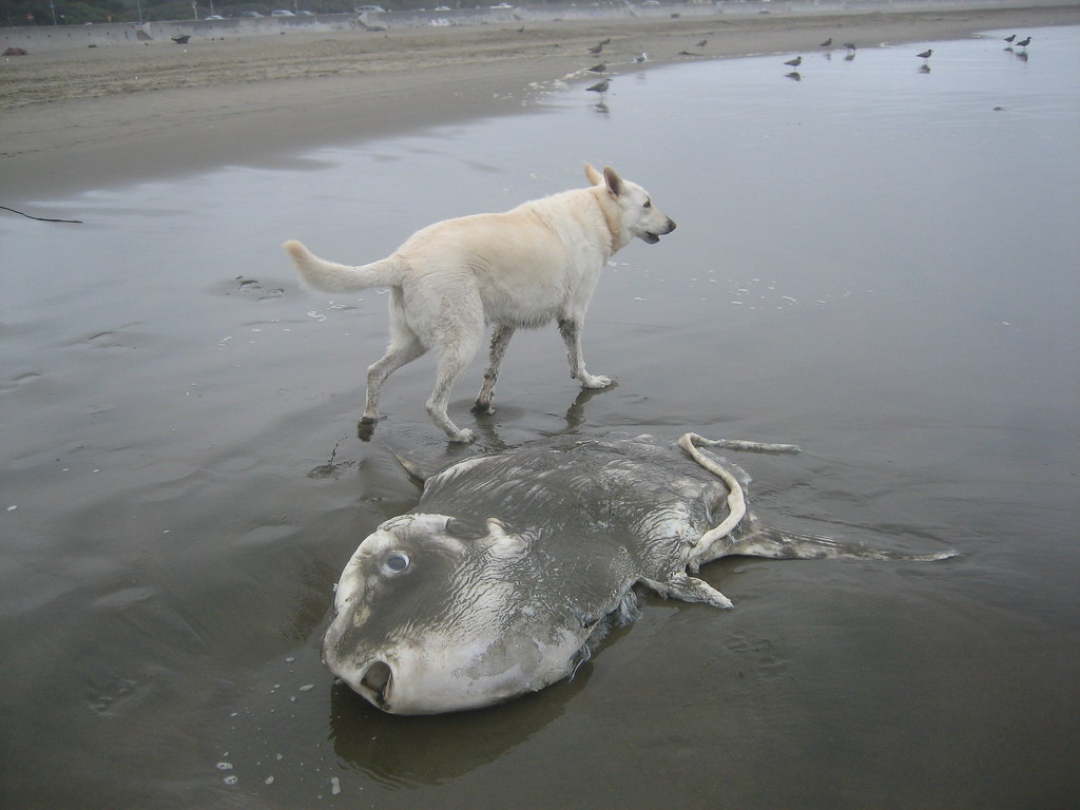
If your dog has a fishy smell, it’s not only concerning but can be hard to live with. There are several potential causes that can make your dog smell like fish. Some are serious and others less so. Both male and female dogs can smell fishy, but girl dogs are more prone to certain health problems that cause a fishy smell. Please continue reading to find out more.
Here are some possible reasons for your dog to have a fishy smell:
If your pup is eating a fish-based diet (salmon, for example) or you’re giving her fish oil supplements, this could cause a lingering fishy smell. Try changing your dog’s food or supplements in consultation with the veterinarian.
This is often the most obvious cause. Given half a chance, dogs will lick just about anything and roll in all sorts of disgusting things, including dead animals. If you have recently been for a walk along the seashore or in a wetland, the fishy smell could be coming from your dog getting her nose in dead fish or dead animals like frogs. Brushing your dog’s teeth and/or giving her a bath should take care of the problem.
If you’ve not been keeping up with brushing your dog’s teeth regularly or your dog has dental issues, this may be the reason for fishy bad breath. When your dog licks things or carries toys around the house, the fishy smell can spread and become overpowering. Veterinarians recommend brushing your dog’s teeth daily (or three times a week at a minimum). But if a fishy smell has been bothering you and seems to be coming from your dog’s mouth, try increasing the frequency of brushing to twice a day to see if it solves the problem.
If your dog’s urine has a strong fishy smell or any pungent odor, it could be due to a urinary tract infection or kidney stones. Due to anatomical differences, female dogs are more prone to developing urinary tract infections (male dogs have a longer urethra and the bacteria need to travel further back to cause an infection). If you suspect a UTI, call your veterinarian without delay. They can make a proper diagnosis and prescribe antibiotics, if needed.
In female dogs, vaginitis or pyometra can be the culprit behind a fishy smell. A change in the normal balance of vaginal flora and an overgrowth of yeast in the vagina can result in vaginitis (inflammation), which can sometimes cause a fishy smell. Pyometra is an infection of the uterus in female dogs that haven’t been spayed. This condition may require emergency surgery. Seek immediate care from the veterinarian if your female dog’s behind has a fishy odor accompanied by abnormal vaginal discharge or itching. Read some more information about why a female dog’s private area can become swollen.
Anal glands in dogs release scent makers which have a strong smell. If these glands become impacted (clogged or blocked), it can cause the fluid to back up, causing a strong fishy smell. The secretions can rub off on car seats, couch fabrics, and carpets, causing an overwhelming fishy smell around your home. If your dog is scooting on her behind, she may be doing it to relieve the pain in her anal glands. Impacted anal glands need to be expressed (released) by the veterinarian or a professional dog groomer.
Skin conditions are another potential cause of unusual odors in dogs, including a fishy smell. Bacterial infections, fungal infections, and allergies can all cause skin problems and these should be evaluated and treated by a vet.
How you stop your female dog from smelling like fish depends on the cause. If your dog has fishy breath, a more aggressive oral care routine might do the trick and get rid of the fishy smell. If you suspect anal glands are the problem, your dog’s groomer or vet can express them. If your dog has urinary or reproductive tract issues, such as UTI or vaginitis, the vet can prescribe the appropriate treatment, including antibiotics if needed.
22 February, 2024